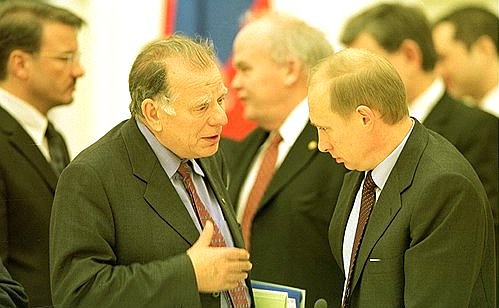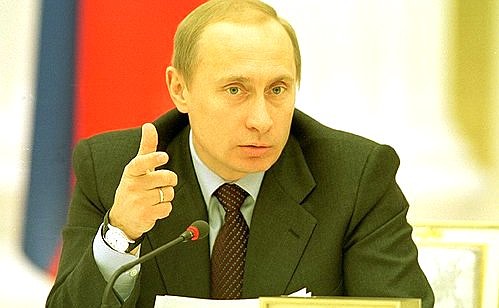Mr Putin said the structure of the Russian economy should be changed; it should shift from the prevailing raw material sector to the use of high technologies. The President said Russia’s science capabilities exceeded the demands of the national economy, therefore it could sell its intellectual property on the world market at a decent price.
The country’s leadership should create conditions for developing scientific infrastructure. It is possible to achieve this goal by means of harmonising the system of state control over intellectual property, leasing property and land of research centres and fighting red-tape in the scientific sector.
President Putin said the unique economic and personnel potential had been accumulated in scientific cities. It should be maintained and effectively used in the new conditions. For this purpose, the President said, one should address the issue of the effective combination of financing science from the budget, state order and investment potential of Russian business, and consider the possibilities of innovation and venture business development, including small business.
Streamlining the legal system is one of the main tasks facing science. Mr Putin also named such priorities as the protection of intellectual property rights and the development of a patent system.
Security Council Secretary Vladimir Rushailo, Deputy Chief of Staff of the Presidential Executive Office Vladislav Surkov, Minister of Economic Development and Trade German Gref, Minister of Industry, Science and Technologies Ilya Klebanov, Minister of Nuclear Power Alexander Rumyantsev, President of the Russian Academy of Sciences Yury Osipov, Vice President of the Russian Academy of Sciences Jores Alferov, and other respected scientists attended the meeting of the Presidential Council on Science and High Technologies.

